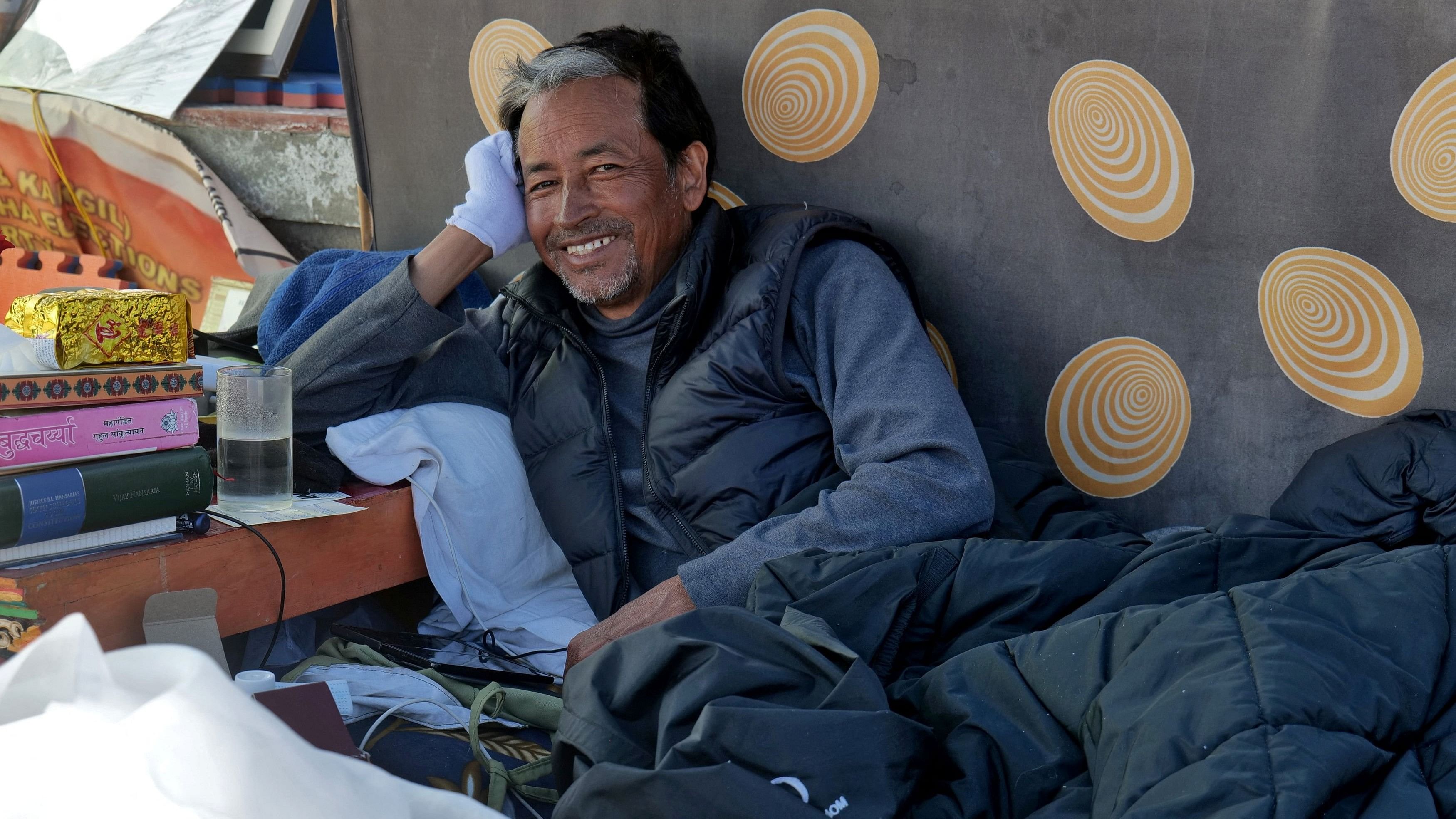
A file picture of Sonam Wangchuk during his 21-day-long hunger strike in support of the demand for statehood for Ladakh
Credit: Reuters Photo
Srinagar: Sonam Wangchuk, the renowned education reformer and environmentalist, has pledged to escalate the movement for full statehood of Ladakh and its inclusion in the Sixth Schedule, declaring that the recent hunger strike was merely the beginning of a larger battle for region’s rights.
After his 21-day hunger strike ended recently, frail but resolute, Wangchuk reaffirmed his commitment to the cause, demanding “Ladakh deserves the status of a state within the Indian Union, and the Sixth Schedule provides the necessary safeguards to protect our identity, land, and resources.”
Amid ongoing protests, including a hunger strike by women in Leh, he emphasised a commitment to Gandhian principles in advancing the cause. Wangchuk outlined a forthcoming rally in Ladakh's border areas on April 7 as part of this endeavor, aimed at garnering wider support for the cause while advocating for environmental conservation.
“With the conclusion of this hunger strike, I do not retreat; rather, I escalate our fight,” he proclaimed, his voice echoing with conviction. The Sixth Schedule guarantees protections to land and a nominal autonomy for the country’s tribal areas.
Expressing disappointment with the BJP government's "failure" to fulfill manifesto promises, Wangchuk highlighted the need for concrete action in response to Ladakh's long-standing demands. He criticised the Union Home Ministry's rejection of these demands and urged the government to honor its commitments.
His tireless advocacy for Ladakh's statehood and constitutional safeguards has galvanised widespread support across the region, cutting across political, religious and social divides. With Wangchuk at the helm, the fight for Ladakh's statehood and inclusion under the Sixth Schedule had evolved into a formidable movement, driven by the indomitable spirit of the people of the cold desert region.
The discontent is not new as Leh Apex Body (LAB) and Kargil Democratic Alliance (KDA), a collective representing several social, religious, political and student organisations of Leh and Kargil, have been fighting for statehood and safeguards to land rights and jobs for the locals since 2020.
The current protests can be traced back to August 2019, when the Centre changed the status of J&K from a state to two Union territories – Ladakh and Jammu and Kashmir.